#john gielgud
Text

Lillian Gish and John Gielgud in Hamlet, which opened at the Empire Theater on October 8, 1936, and ran until January 30, 1937.
Lillian was superb in that role [Ophelia]. Lillian was, in that instance, very much like a dollop of mercury: you could bend or caress or throw her anything, toward anything, and she would automatically conform to that situation or mood. Her understanding of the mental instability of Ophelia was acute: her body language; her tremulous speech—one was aware of the tightrope on which she was walking.
Judith [Anderson] was far more experienced in classical theatre. Her mind was a repository of scholarly research. She really knew her Shakespeare. However, she realized that there was nothing quite like Lillian. Call it star power; call it an intuitive understanding of a role; call it alchemy. I don't know. I really don't. But it was magical.
—John Gielgud
Photo: Florence Vandamm via MCNY
#vintage New York#1930s#Florence Vandamm#Hamlet#Lillian Gish#John Gielgud#Judith Anderson#vintage Broadway#theater#acting#Shakespeare#vintage NYC
151 notes
·
View notes
Text

John Gielgud as Julius Caesar, Robert Vaughn as Casca, Richard Johnson as Caius Cassius, Diana Rigg as Portia, Jill Bennett as Calpurnia, Richard Chamberlain as Octavius Caesar / Augustus, Charlton Heston as Marc Antony and Jason Robards as Marcus Brutus in a promotional photo for "Julius Caesar" (Stuart Burge, William Shakespeare, UK, 1970).
Video Clip: http://home.scarlet.be/~pvandew1/avengers/gastop_julius_caesar.htm
#diana rigg#john gielgud#robert vaughn#richard chamberlain#jason robards#charlton heston#richard johnson#shakespeare#julius caesar#1970s#movies#promotional stills
166 notes
·
View notes
Text
Do you like Hamlet? John Gielgud? Richard Burton? Theatre and film history? The process of putting on a show? Snarky, insightful, really entertaining commentary on all of the above? Then you're in the right place! Emails from an Actor is a (mostly) real-time readalong of John Gielgud Directs Richard Burton in Hamlet: A Journal of Rehearsals and Letters from an Actor, two books written about the 1964 Broadway production of Hamlet. Both have been out of print for decades, but I acquired PDFs, extracted the text, edited it, and now they exist in accessible form, woohoo! (Edit: Letters from an Actor is coming into print again on March 5! I'm still going ahead with the emails, but buy it when it's out!)
John Gielgud Directs Richard Burton in Hamlet: A Journal of Rehearsals by Richard L. Sterne, is, well, what it says on the tin! Sterne, who played the Gentleman and understudied Laertes, secretly tape recorded rehearsals, going so far as to hide under a platform for a private rehearsal with just Gielgud and Burton. The book summarizes and quotes heavily from those recordings. It also includes a prompt-script for the production with descriptions of the blocking and acting choices - I haven't edited that part yet, but I plan to.
Letters from an Actor by William Redfield, who played Guildenstern, is less objective but way more fun. I love it so much that when I first got it in 2006, I just about killed my hands typing up quotes to share on Livejournal. Redfield had an extensive career in theatre, film, and TV. He's best known for playing Dale Harding in the film One Flew Over the Cuckoo's Nest, but if you happen to be a musical nerd, you might know him as Mercury in Cole Porter's Out of This World. (Also relevant to musical nerds: Alfred Drake as Claudius, John Cullum as Laertes, and George Rose as the Gravedigger!) The book is structured as letters to a friend, Robert Mills, who wanted to know about life in the theatre. Redfield took Mills from his audition through opening night on Broadway, relating thoughts and anecdotes about his profession along the way. As in Hamlet, Richard Burton plays a major role, with stories of his own and a glimpse into his life with Elizabeth Taylor in the days surrounding their (first) wedding. The rehearsal process was frustrating for Redfield, and with all the time he and his Rosencrantz spend feeling lost, the book kind of comes across as a Rosencrantz and Guildenstern Are Dead AU.
I'll be sending out the journal entries and letters on the days they were written and/or are about, with just a little bit of jumping around in time. Subscribe here! I made it private for copyright reasons, but don't worry, I'll approve everyone. The emails will start with some introductory material on January 24 and continue through an epilogue in mid-April. Follow this blog for some extras! And reblogs, if people end up talking about this! Tag me or use the tag "emails from an actor" if you want me to see something.
I'm so excited to share these books with people! But mostly Letters from an Actor. Seriously, it's so good.
#hamlet#shakespeare#john gielgud#richard burton#elizabeth taylor#william redfield#is the guy in the icon by the way#rosencrantz and guildenstern are dead#(not really but i think people who like it will also like this so hey!)#emails from an actor
98 notes
·
View notes
Text
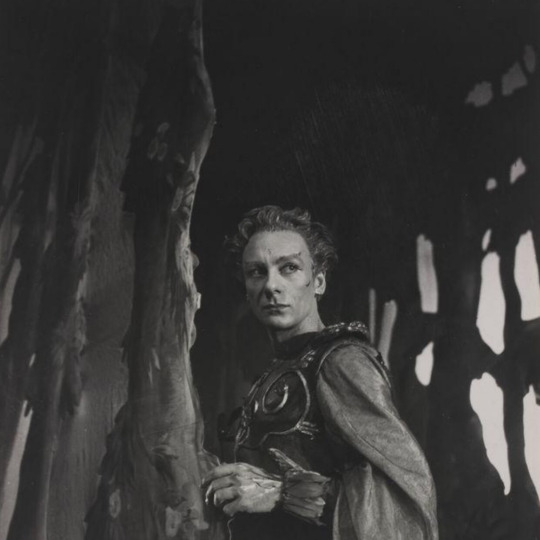


John Gielgud as Oberon by Cecil Beaton. January 1945.
Accession Nos. S.1587-2015, S.1585-2015, and S.1586-2015
195 notes
·
View notes
Text

John Gielgud, April 14, 1904 – May 21, 2000.
With Dirk Bogarde on the set of Alain Resnais's Providence (1977). Photo by Jürgen Vollmer.
37 notes
·
View notes
Text

“You can be good in a good movie, you can be good in a bad movie, you can be bad in a bad movie, but never, ever, be bad in a good movie.”
– John Gielgud, #botd in 1904
45 notes
·
View notes
Text

max adrian as puck, peggy ashcroft as titania and john gielgud as oberon in a midsummer night's dream at the haymarket, 1945
📸 by cecil beaton
19 notes
·
View notes
Text
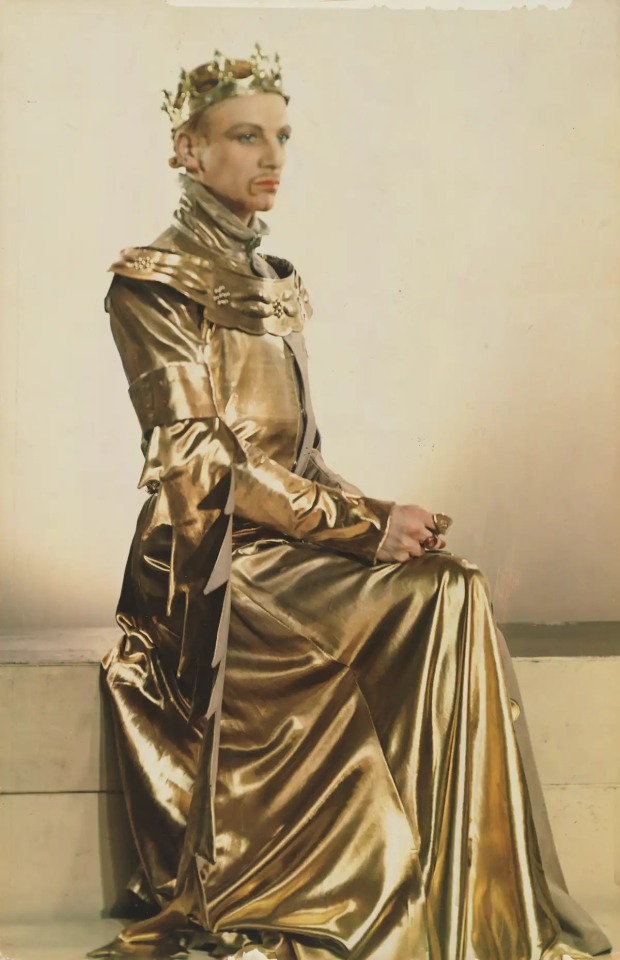
Madame Yevonde (Yevonde Philone Cumbers Middleton)
John Gielgud as Richard I in Richard of Bordeaux
1933
#madame yevonde#yevonde middleton#john gielgud#shakespeare#celebrity photographer#british photographer#british artist#british actors#portraiture#portrait photography#women photographers#woman photographer#woman artist#aesthetic#beauty#british art#modern art#art history#aesthetictumblr#tumblraesthetic#tumblrpic#tumblrpictures#tumblr art#tumblrstyle#artists on tumblr
38 notes
·
View notes
Text

"What can I write that will bring back the delight and sparkle that emanated from her? She hated getting old, but I thought her more beautiful than ever as the years went by, with her fine bone structure and delicate neck.
How often I think of her calling me on the telephone with that imperious but affectionate “Johnnie?” and wish so much that I could hear that dear voice again."
-John Gielgud on Vivien Leigh
57 notes
·
View notes
Photo
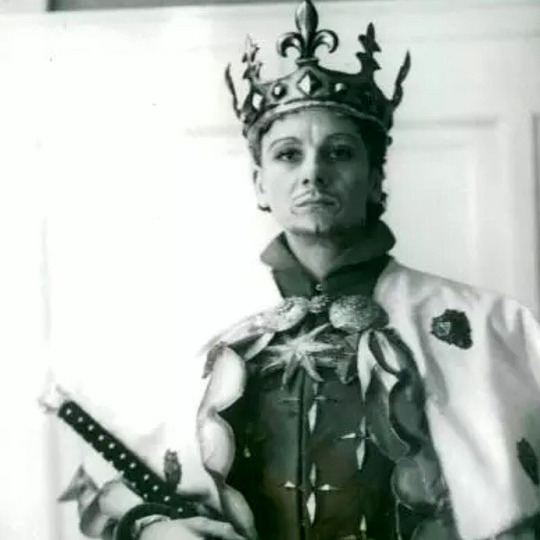
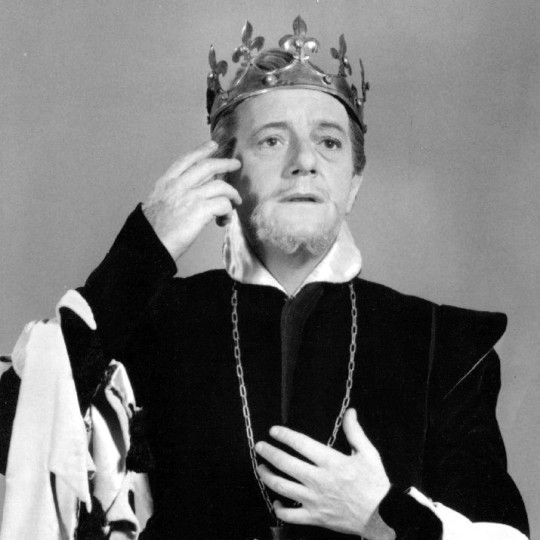
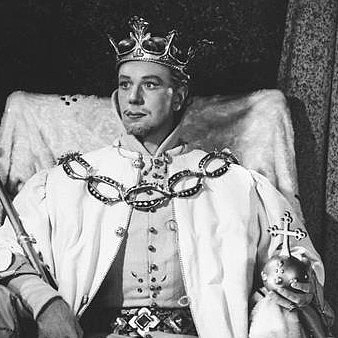
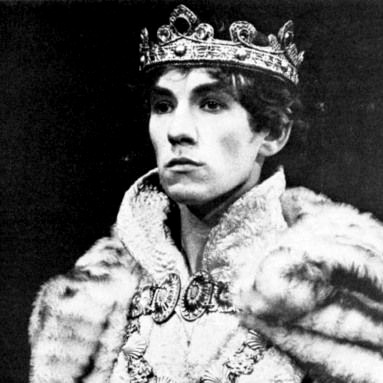
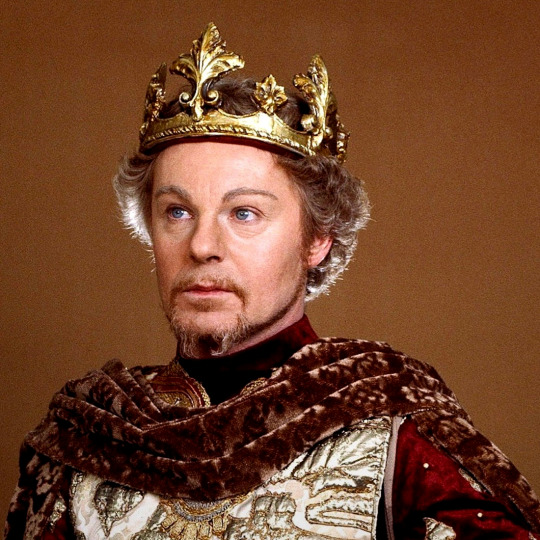

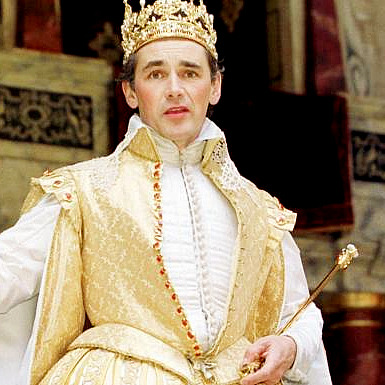


John Gielgud / Maurice Evans / Michael Redgrave / Ian McKellen / Derek Jacobi / Fiona Shaw / Mark Rylance / Ben Whishaw / David Tennant as King Richard II.
#*mine#shakespeare#william shakespeare#richard ii#theatre#john gielgud#maurice evans#michael redgrave#ian mckellen#derek jacobi#fiona shaw#mark rylance#ben whishaw#david tennant#performing arts
453 notes
·
View notes
Text
Every time Burton shares an entertaining anecdote about Olivier, he emerges as an unreliable narrator. And Redfield consistently proves to be a meticulous fact-checker. It raises suspicion that Burton might have fabricated some of his other stories about his colleagues. They are still great and amusing even if they are not true.
In "The Motive and the Cue," they incorporated an episode where Burton recounts a tale of Olivier supposedly severing his hand in "Titus Andronicus." However, all the Redfield’s incriminating observations are attributed to Gielgud, who reveals them only when he and Burton are alone. This allows him to expose Burton without undermining his credibility in his colleagues’ eyes:
The reason why you can’t remember the speech is because it isn’t there. Titus doesn’t even chop his own hand, Aaron the Moor does it. […] So I don’t know which speech of Sir Laurence Olivier’s you are remembering, but it was not that one.
#emails from an actor#the motive and the cue#laurence olivier#john gielgud#richard burton#william redfield
16 notes
·
View notes
Text

Photograph of Gielgud by Howard Coster
* * * *
..."I'm now at an age where I hear a song from the past~~from a good or a bad time~~and I become an emotional wreck. I am back in the time~~good or bad~~and I now have the perspective to understand what really happened, what things really meant. A dog runs to me and offers me affection and I am both overwhelmed and satisfied. A kind word at the market comes my way, and I think of crying. I think I may be grown up now. I think I understand things~~their worth and their meaning. Old age isn't entirely bad."
~ John Gielgud/Interview with James Grissom/1991
[Follies Of God]
34 notes
·
View notes
Text

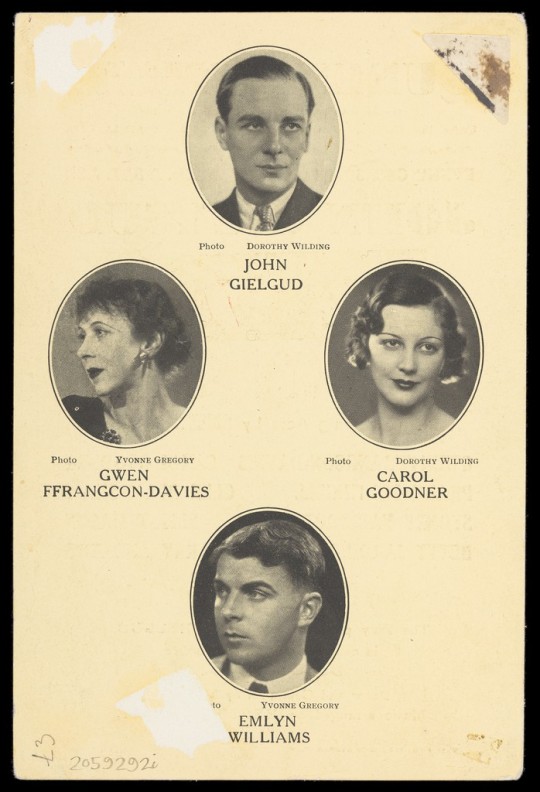
He Was Born Gay, Queen's Theatre, 1937
Until the 1970s the word 'gay' still meant 'happy' to the great majority of people in Britain, although its sexual and moral connotations go back to the mid-19th century, when [female] London prostitutes were known as 'gay ladies'. The fact that it could be used in the title of a popular play in London in 1937 written by one homosexual [Emlyn Williams] and starring another [John Gielgud], proves the obscurity of its secondary meaning at this time, although both Gielgud and Williams must have been aware of the irony. — James Gardiner
#gay ladies#queer history#gay#queer#queen's theatre#john gielgud#emlyn williams#1937#1930s#30s#london
28 notes
·
View notes
Text
John Gielgud on Ophelia, quoted in John Gielgud Directs Richard Burton in Hamlet:
I have an idea about Ophelia’s mad scene. I thought we could get the idea that she was shut up in the castle. And you, Gertrude, come down the grand stairway saying “I won’t speak with her, I won’t speak with her.” But then they let Ophelia in—and her one idea is to get out into the open air. And so she keeps on going to the center doors trying to find a way to open them. Gertrude knows it’s dangerous and that Ophelia mustn’t be let out. Finally she does find the door and she rushes out, which alarms the Queen.
Then the riot begins with Laertes, and Ophelia, coming back, hears all the noise. She has been down by the river already and her dress is stained with weeds and muck. And she thinks of the flowers. She’s come back, she thinks, for the funeral—to offer the flowers for her father; she can’t find the body because the King has done “but greenly in hugger-mugger to inter him.” And I don’t think she ever saw him after he was dead. So that when she’s come back the second time and Laertes is there, she’s looking for poor Polonius’ body, and for Hamlet, too, who went away, and she can’t find either of them. She’s distracted and looks about, under the rostrum and everywhere. Then finally, when she sees it’s no good and she’s given away the flowers and doesn’t know where she is because there is no funeral, she kisses the Queen suddenly, and then very slyly, seeing the door is open, makes a dash for it and goes rushing out. The Queen rushes out after her, so we are prepared to hear the description of Ophelia’s death at the end of the scene.
I’m rather sick of the wild indecency that has been put into the scene in recent productions, with Ophelia tearing off her clothes and clutching all the gentlemen. I don’t think Shakespeare meant it. It must be a touching scene. You see, I think in Shakespeare’s time people always laughed at lunatics. They visited madhouses right up to the eighteenth century in England as we visit the zoo today. And Shakespeare knew that the only way to make madness pitiful, as is obvious with Lady Macbeth and Ophelia, was to give them a poignant, agonized, though not sentimental, scene. If that was not intended by Shakespeare, Laertes would never say “Thought and affliction, passion, hell itself she turns to favor and to prettiness.” And to suddenly make Ophelia openly lewd onstage is against the intention of the writing. In this other way you can be just as strong. I don’t want to make it sentimental and Victorian.
I think we must all play not as though we were going to put this poor creature in prison or to lock her up, but as though we were going to restrain her in the castle. After all, “Denmark’s a prison,” as Hamlet says and as our set conveys. Even Hamlet himself is trying to break away to get to the outer world. All the people in the play are shut up in this castle. You play that, really, all through the play. There is this curious feeling, except on the battlements and in the churchyard, that they are all really locked in the castle, in a miasma of corruption and sensuality. It isn’t until Fortinbras comes at the end that the whole thing opens and all are free.
Get more of Gielgud's Hamlet insights with Emails from an Actor!
37 notes
·
View notes
Text

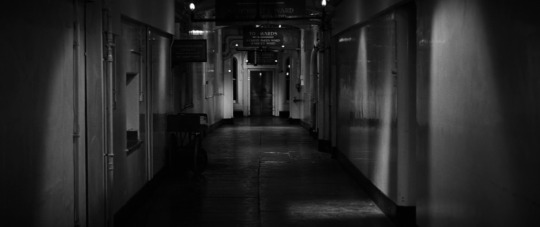
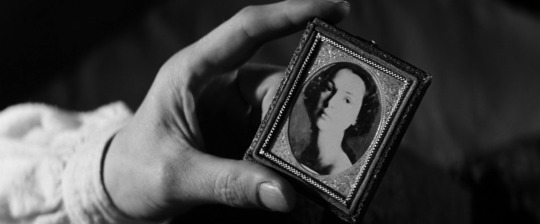
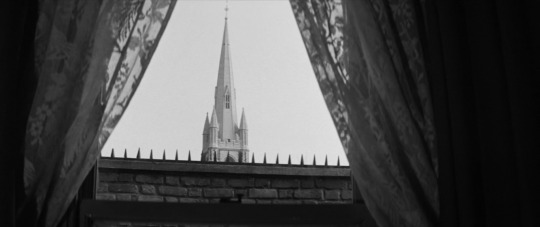

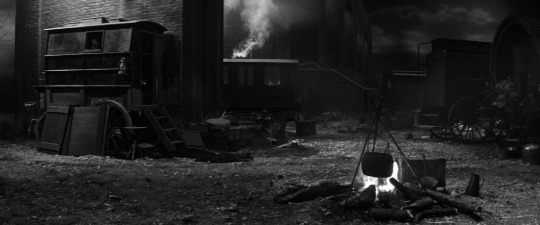

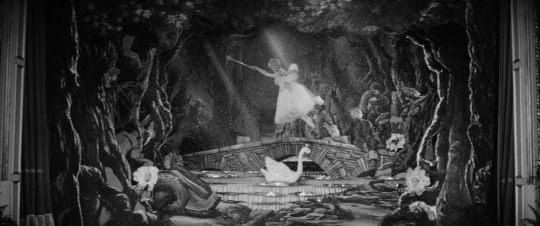

The Elephant Man (1980) dir. David Lynch
#the elephant man#david lynch#filmedit#movieedit#cinema#screencaps#anthony hopkins#john hurt#anne bancroft#john gielgud#cinematography#cinephile#filmarchive#film stills
37 notes
·
View notes
Text
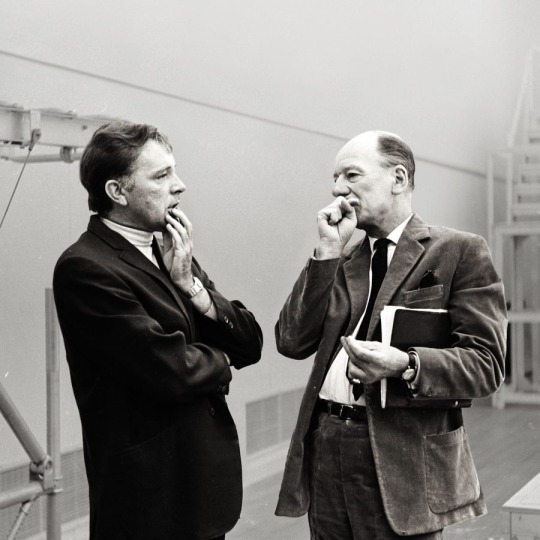
Richard Burton, November 10, 1925 – August 5, 1984.
With John Gielgud during a rehearsal for a 1964 production of Hamlet.
31 notes
·
View notes